Books by Manuel Dries

MTNF, Boston, Berlin: de Gruyter, 2018
Nietzsche’s thought has been of renewed interest to philosophers in both the Anglo- American and ... more Nietzsche’s thought has been of renewed interest to philosophers in both the Anglo- American and the phenomenological and hermeneutic traditions. Nietzsche on Consciousness and the Embodied Mind presents 16 essays from analytic and continental perspectives. Appealing to both international communities of scholars, the volume seeks to deepen the appreciation of Nietzsche’s contribution to our understanding of consciousness and the mind. Over the past decades, a variety of disciplines have engaged with Nietzsche’s thought, including anthropology, biology, history, linguistics, neuroscience, and psychology, to name just a few. His rich and perspicacious treatment of consciousness, mind, and body cannot be reduced to any single discipline, and has the potential to speak to many. And, as several contributors make clear, Nietzsche’s investigations into consciousness and the embodied mind are integral to his wider ethical concerns.
This volume contains contributions by international experts such as Christa Davis Acampora (Emory University), Keith Ansell-Pearson (Warwick University), João Constâncio (Universidade Nova de Lisboa), Frank Chouraqui (Leiden University), Manuel Dries (The Open University; Oxford University), Christian J. Emden (Rice University), Maria Cristina Fornari (University of Salento), Anthony K. Jensen (Providence College), Helmut Heit (Tongji University), Charlie Huenemann (Utah State University), Vanessa Lemm (Flinders University), Lawrence J. Hatab (Old Dominion University), Mattia Riccardi (University of Porto), Friedrich Ulfers and Mark Daniel Cohen (New York University and EGS), and Benedetta Zavatta (CNRS).
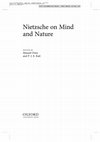
This volume presents new essays exploring important aspects of Nietzsche's philosophy in connecti... more This volume presents new essays exploring important aspects of Nietzsche's philosophy in connection with two major themes: mind and nature. A team of leading experts address questions including: What is Nietzsche's conception of mind? How does mind relate with the (rest of) nature? And what is Nietzsche's conception of nature? They all express the thought that Nietzsche's views on these matters are of great philosophical value, either because those views are consonant with contemporary thinking to a greater or lesser extent or because they represent a rich alternative to contemporary attitudes. The essays engage with Nietzsche's metaphysics; his philosophy of mind in light of contemporary views; the question of panpsychism in Beyond Good and Evil 36; the rejection of dualism in favour of monism (in particular a monism of value); Nietzsche's positions on consciousness and embodied cognition in light of recent cognitive science; a conception of freedom and agency based on an intrinsically motivating; embodied sense of self-efficacy; a Nietzschean account of valuing understood as drive-induced affective orientations of which an agent approves; the idea of ressentiment conceived as a process of intentional, not reflectively strategic, self-deception about one's own conscious mental states; and a defence of a Nietzschean naturalism.
Peer-Reviewed Papers by Manuel Dries
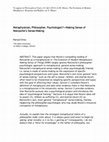
This paper argues that Moore’s compelling reading of Nietzsche as a metaphysician in The Evolutio... more This paper argues that Moore’s compelling reading of Nietzsche as a metaphysician in The Evolution of Modern Metaphysics: Making Sense of Things (EMM) largely ignores Nietzsche’s philosopher-psychologist approach to metaphysical, general sense-making. Nietzsche’s metaphysical sense-making is often psychologically framed, i.e. sense is made of sense-making as the expression of specific psychological perspectives and types. Nietzsche’s own most general “acts of sense-making,” such as the will to power, nihilism, and eternal return, often need to be interpreted as targeting specific perspectives and types with the goal of affecting their values. Section 2 considers Moore’s definition of metaphysics and asks what evidence there is that Nietzsche is a metaphysician in his inclusivistic sense. Section 3 provides evidence that Nietzsche pursues a psychological project and introduces the idea of “psychological framing.” Sections 4–6 argue that Moore takes will to power (4), nihilism as suffering (5), and eternal return (6) as Nietzsche’s own, most general “metaphysical” sense-making, thereby neglecting the philosopher-psychologist who may elude Moore’s inclusivist conception of metaphysics.
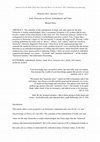
The centrality of the embodiment of mind, self, and values for the later Nietzsche is widely ackn... more The centrality of the embodiment of mind, self, and values for the later Nietzsche is widely acknowledged. Here, I reconstrue Nietzsche’s HL to show that he uses his drive model of the mind already in this early text. The “historical sickness” central to HL is diagnosed in the form of failures of embodiment and drive control. First, I argue that a precursor to Nietzsche’s figure of “the last human” is already the target in HL. Second, I offer working definitions for terms such as ‘drives’, ‘affects,’ and ‘values,’ which are crucial to Nietzsche’s heuristic diagnostic framework. I then focus on the neglected passage that contrasts the medieval memento mori with a modern memento vivere, showing that the former functions as an embodied mechanism of willing and self-control, which Nietzsche claims the moderns have been unsuccessful in replacing. Finally, I draw on recent research in embodied cognition and identify two causes—“overload” and “semantic embodiment”—of the modern “historical sickness” that undermines flourishing.

Nietzsche on Mind and Nature, 2015
While Nietzsche's rejection of metaphysical free will and moral desert has been widely recognised... more While Nietzsche's rejection of metaphysical free will and moral desert has been widely recognised, the sense in which Nietzsche continues to use the term freedom affirmatively remains largely unnoticed. The aim of this article is to show that freedom and agency are among Nietzsche’s central concerns, that his much-discussed interest in power in fact originates in a first-person account of freedom, and that his understanding of the phenomenology of freedom informs his theory of agency. He develops a non-reductive drive-psychological motivational theory: reflective judgement and reasons can motivate by means of affective orientations agents have due to their drives. In particular, due to a standing desire or 'instinct for freedom' agents can generate, in mental simulations, the necessary motivational affects to unify their drives in view of certain long-term goals.
Nietzsche on Mind and Nature, 2015
This paper examines what Nietzsche might mean by the proposition that “values are created”. It fu... more This paper examines what Nietzsche might mean by the proposition that “values are created”. It further raises the issue whether there is a hard problem of value creation analogous to the “hard problem” in the philosophy of mind. Nietzsche could be seen as a philosopher who tried to shift people’s views about values away from any realist-objectivist intuitions. He was optimistic that these views could be eliminated, and that eventually most or all would come to conceive of values as created. It is shown that Nietzsche rejects value realism in favour of a compelling antirealist conception of value, which he takes to be superior due to one specific property of values, their “aliveness”. If there is a hard problem of value, however, and for the realist any created value simply does not count as a value, it is unclear if Nietzsche’s conception is constructive.
This paper responds to three concerns regarding the viability of Nietzsche’s conception of value ... more This paper responds to three concerns regarding the viability of Nietzsche’s conception of value creation. Section one examines the claim that philosophy is unlikely to contribute to the creation of value. Section two argues that some of the difficulties raised by Nietzsche’s allegedly highest value of life-affirmation may require for a solution two different conceptions of life-affirmation: basic life-affirmation and a theoretically more demanding, qualitatively different Life-affirmatione par excellence. Section three proposes that Nietzsche’s perspectivist method, which distinguishes between perspectival “knowing” and perspectival “objective” knowledge in GM III 12, may usefully be applied to the knowledge and recognition of differences in value perspectives and help improve our value
practices.
This article answer some criticisms raised against How hard is it to create values? and offers a ... more This article answer some criticisms raised against How hard is it to create values? and offers a further formulation of the hard problem of value. Section 1 addresses the objection that Nietzsche’s criterion of life is too vague to serve as a useful value standard. Section 2 expands on the important idea of appreciating the difference among value perspectives. Sections 3 and 4 present the “hard problem of value” as a challenge for Nietzschean value agonism and value nihilism respectively. Section 5 offers a further formulation of the “hard problem of value”: a thought experiment about Mary, an expert, anti-realist value creator, whose values may or may not lack some qualities, analogous to Mary, the colour scientist of the “knowledge argument”.
This article examines Nietzsche’s analysis of the phenomenology of agent causation. Sense of agen... more This article examines Nietzsche’s analysis of the phenomenology of agent causation. Sense of agent causation is for Nietzsche sense of self-efficacy. It is tenacious because it originates, according to Nietzsche’s hypothesis, in the embodied and situated experience of effort in overcoming resistances. It arises at the level of the organism and is sustained by higher-order cognitive functions. Based on this hypothesis, Nietzsche regards the sense of self as emerging from a homeostatic system of drives and affects that unify such as to maintain self-efficacy levels. He relies on the same hypothesis to explain the emergence of an ascetic moral system and its specific, interpretive-affective ‘mechanism of willing’.
, 2010
This article argues that Nietzsche's transvaluation project refers not to a mere inversion or neg... more This article argues that Nietzsche's transvaluation project refers not to a mere inversion or negation of a set of values but, instead, to a different conception of what a value is and how it functions. Traditional values function within a standard logical framework and claim legitimacy and bindingness based on exogenous authority with absolute extension. Nietzsche regards this framework as unnecessarily reductive in its attempted exclusion of contradiction and real opposition among competing values and proposes a nonstandard, dialetheic model of valuation.
Nietzsche on Time and History, 2008
Why are we still intrigued by Nietzsche? This chapter argues that sustained interest stems from N... more Why are we still intrigued by Nietzsche? This chapter argues that sustained interest stems from Nietzsche’s challenge to what we might call the ‘staticism’ inherent in our ordinary experience. Staticism can be defined, roughly speaking, as the view that the world is a collection of enduring, re-identifiable objects that change only very gradually and according to determinate laws. The chapter discusses Nietzsche’s rejection of the remnants of staticism in Hegel and Schopenhauer (1). It outlines why Nietzsche deems belief in any variant of the staticist picture as problematic (2); and examines Nietzsche’s adualistic-dialetheic stance towards, for example, first-person and third-person descriptions in the philosophy of mind (3). The chapter closes with a discussion of the contributions of "Nietzsche on Time and History".
Nietzsche on Time and History, 2008
For Nietzsche’s hypothesis of a threat of nihilism to be intelligible, this chapter attributes to... more For Nietzsche’s hypothesis of a threat of nihilism to be intelligible, this chapter attributes to him at least three assumptions that underpin his philosophical project: (1) what there is, is becoming (and not being), (2) most (if not all) strongly believe in being, and (3) nihilism is a function of the belief in being. This chapter argues that Nietzsche held two doctrines of becoming: one more radical, which he believes is required to fend off nihilism, and one much more moderate—the ontology of relations he develops under the label ‘will to power’. Based on the latter he attempts (but ultimately fails) to develop an ‘adualistic’—neither monistic nor dualistic—practice of thought, a ‘simultaneity-thinking’ ("Zugleich-Denken") that would no longer be subject to nihilism.
This paper considers three general dilemmas that tend to undermine successful configurations of u... more This paper considers three general dilemmas that tend to undermine successful configurations of unity: the either/or dilemma, the synthesis dilemma and the relativism dilemma. It argues that, in his aesthetic writings, Schiller’s critique of Kantian dualisms leads him to an adualistic conception of unity that operates with a different, more inclusive approach to opposition and unification.
Events by Manuel Dries
Call for papers:
Owning our emotions — Emotion, authenticity and the self
International Conferenc... more Call for papers:
Owning our emotions — Emotion, authenticity and the self
International Conference
The Senate House, London
21-22 September 2016
Funded by the Mind Association and The Open University
Media et al by Manuel Dries
In this contribution to the Methods in Motion Blog, published by The Centre for Citizenship, Iden... more In this contribution to the Methods in Motion Blog, published by The Centre for Citizenship, Identity and Governance (CCIG) at the Open University, I argue that relativism does not mean that “anything goes” but requires us to take other perspectives and methods seriously, since none can claim absolute authority. If relativism (or perhaps better: perspectivism) is increasingly acknowledged as underpinning our conceptions of reality, it is only through the establishment of new methods for thinking relatively and relationally that the real work can begin.

Genius of the Modern World, Jun 28, 2016
(Abstract from BBC 4 website) "The philosopher Friedrich Nietzsche was one of the most brilliant ... more (Abstract from BBC 4 website) "The philosopher Friedrich Nietzsche was one of the most brilliant and dangerous minds of the 19th century. His uncompromising and often brutal ideas smashed the comfortable presuppositions and assumptions of religion, morality and science. His was a world not just bereft of God but almost of humanity, breathtaking in both its post-religious starkness and its originality.
Bettany Hughes goes in search of the beliefs of a man whose work is amongst the most devastatingly manipulated and misinterpreted in philosophical history. Nietzsche's dislike of systems and of seeking truths left his ideas ambiguous and sometimes incoherent. It was this that made him vulnerable to interpretation, and as a result his thoughts - which warned against the very notion of a political system like totalitarianism - were manipulated to strengthen its ideals.
Vocally opposed to anti-Semitism, his anti-Semitic sister made sure he became the poster boy for Hitler's drive for an Aryan ideal. Anti-nationalistic, he came to symbolise a regime he would have loathed. His philosophical quest led him to isolation and ultimately madness, but his ideas helped shape the intellectual landscape of the modern world."
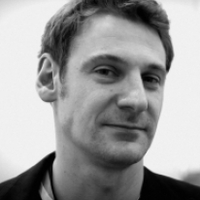





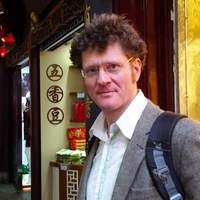




Uploads
Books by Manuel Dries
This volume contains contributions by international experts such as Christa Davis Acampora (Emory University), Keith Ansell-Pearson (Warwick University), João Constâncio (Universidade Nova de Lisboa), Frank Chouraqui (Leiden University), Manuel Dries (The Open University; Oxford University), Christian J. Emden (Rice University), Maria Cristina Fornari (University of Salento), Anthony K. Jensen (Providence College), Helmut Heit (Tongji University), Charlie Huenemann (Utah State University), Vanessa Lemm (Flinders University), Lawrence J. Hatab (Old Dominion University), Mattia Riccardi (University of Porto), Friedrich Ulfers and Mark Daniel Cohen (New York University and EGS), and Benedetta Zavatta (CNRS).
Peer-Reviewed Papers by Manuel Dries
practices.
Events by Manuel Dries
Owning our emotions — Emotion, authenticity and the self
International Conference
The Senate House, London
21-22 September 2016
Funded by the Mind Association and The Open University
Media et al by Manuel Dries
Bettany Hughes goes in search of the beliefs of a man whose work is amongst the most devastatingly manipulated and misinterpreted in philosophical history. Nietzsche's dislike of systems and of seeking truths left his ideas ambiguous and sometimes incoherent. It was this that made him vulnerable to interpretation, and as a result his thoughts - which warned against the very notion of a political system like totalitarianism - were manipulated to strengthen its ideals.
Vocally opposed to anti-Semitism, his anti-Semitic sister made sure he became the poster boy for Hitler's drive for an Aryan ideal. Anti-nationalistic, he came to symbolise a regime he would have loathed. His philosophical quest led him to isolation and ultimately madness, but his ideas helped shape the intellectual landscape of the modern world."
This volume contains contributions by international experts such as Christa Davis Acampora (Emory University), Keith Ansell-Pearson (Warwick University), João Constâncio (Universidade Nova de Lisboa), Frank Chouraqui (Leiden University), Manuel Dries (The Open University; Oxford University), Christian J. Emden (Rice University), Maria Cristina Fornari (University of Salento), Anthony K. Jensen (Providence College), Helmut Heit (Tongji University), Charlie Huenemann (Utah State University), Vanessa Lemm (Flinders University), Lawrence J. Hatab (Old Dominion University), Mattia Riccardi (University of Porto), Friedrich Ulfers and Mark Daniel Cohen (New York University and EGS), and Benedetta Zavatta (CNRS).
practices.
Owning our emotions — Emotion, authenticity and the self
International Conference
The Senate House, London
21-22 September 2016
Funded by the Mind Association and The Open University
Bettany Hughes goes in search of the beliefs of a man whose work is amongst the most devastatingly manipulated and misinterpreted in philosophical history. Nietzsche's dislike of systems and of seeking truths left his ideas ambiguous and sometimes incoherent. It was this that made him vulnerable to interpretation, and as a result his thoughts - which warned against the very notion of a political system like totalitarianism - were manipulated to strengthen its ideals.
Vocally opposed to anti-Semitism, his anti-Semitic sister made sure he became the poster boy for Hitler's drive for an Aryan ideal. Anti-nationalistic, he came to symbolise a regime he would have loathed. His philosophical quest led him to isolation and ultimately madness, but his ideas helped shape the intellectual landscape of the modern world."